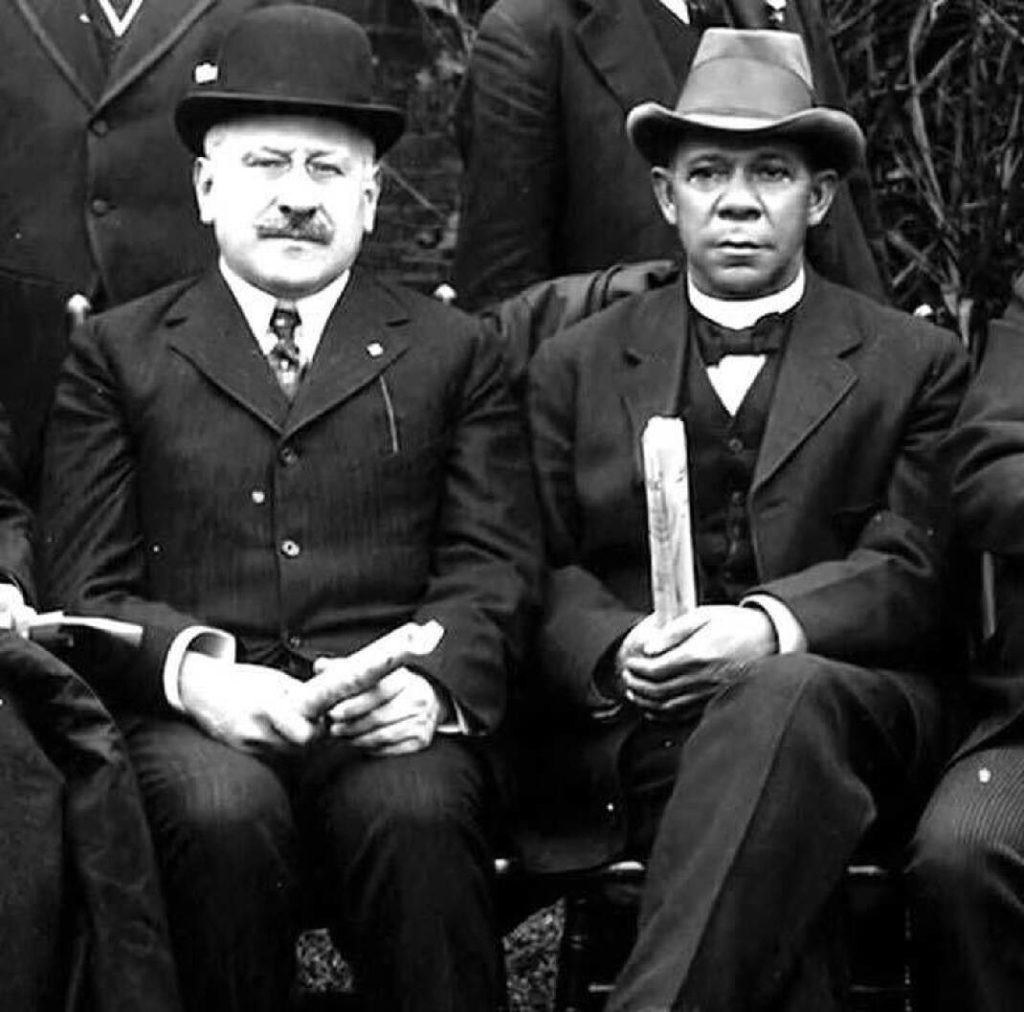[ad_1]
When Julius Rosenwald read Booker T. Washington’s “Up from Slavery,” the Sears magnate sought an introduction to the former slave and leader of the Tuskegee Institute. Washington invited the Jewish leader to join Tuskegee’s board. That friendship formed in 1912 led to educating more than 662,000 Black students across the South and fostered community growth in a way that altered the landscape of philanthropy.
Both men were passionate about increasing opportunities for African Americans and saw education as the critical vehicle. The movement these men created has been called the most important initiative to advance Black education in the early 20th century.
More than 5,377 schools were built across the country between 1917 and 1932 and bridged the gap between the absence of fair treatment for African Americans and federal laws mandating services. To promote collaboration between Black and white people, Rosenwald and Washington devised a program that required matching funds from white school boards and self-help or construction funds from African American communities. This model empowered communities as the driving force to achieve meaningful education for their children, enabled construction of Rosenwald Schools in 15 states and 883 counties from Texas to Maryland, and changed the trajectory of life for a generation of students and families.
Although Chattanooga’s Booker T. Washington School was built during a time when segregation was the law and inequity the norm, former students recalled that “within those walls we were assured that we could do and be anything that we desired. We were inspired by teachers who cared about the students’ well-being as much as the teaching material.”
Nationally, Rosenwald School alumni became thought leaders, change-makers and social justice icons. Zora Neale Hurston, Medgar Evers, Maya Angelou, Congressman John Lewis and the Rev. Martin Luther King Jr. were a few of the notables who learned from the institutions supported by the Sears magnate and the former slave. Can you imagine the world without their dreams, initiative and commitment?
In addition to regular classes, local Rosenwald Schools offered courses with two purposes: preparing the student for furthering education and training them to become well-rounded people empowered to perform to the best of their ability. The curriculum helped students achieve a sense of personal and collective worth during a time when communities were divided by segregation. The Rosenwald Schools began a tide of change and were a focal point of community identity and aspirations.
Eight Rosenwald Schools were built in the Chattanooga area, including Bakewell, Booker T. Washington, Chickamauga, Georgetown, Hixson, Roland W. Hayes, Summit and Washington units. Built between 1922 and 1929, these schools were in predominantly African American communities. While Eastdale was not a Rosenwald-funded school, it was built in a similar style.
Schools were usually wooden structures and built in one-, two- or three-room styles with mandated standards that made a clear statement about the equality of all children. The Rosenwald project provided technical advice, practical handbooks and building designs. By 1928, one in five rural schools in the South were Rosenwald Schools. Building designs were created by a team overseen by accredited architect Robert Robinson Taylor, the first African American graduate of MIT. Designs typically featured tall ceilings and large windows to maximize light, stoves for heat in the absence of electricity and movable partitions or walls to allow space for a community center during after-school hours.
The National Trust for Historic Preservation added Rosenwald Schools to its list of most endangered historic places, creating an impetus for what became the National Historical Park Campaign to honor the schools and preserve remaining buildings. Today, fewer than 10% of the original structures remain, though many local original sites overlap with current city of Chattanooga community centers.
National Park Partners, champions for conserving the natural, historic and cultural resources of Chickamauga and Chattanooga National Military Park, hosted the Rosenwald Campaign chair, Dr. Dorothy Canter, in the Fall 2021 Moccasin Bend Lecture Series. NPP is collecting and curating oral histories and photographs related to the Rosenwald Schools in the Chattanooga area and would love to hear from anyone in the community connected to a Rosenwald School, either personally or through family members.
Please contact Tricia Mims and her team at info@nppcha.org to get involved. For additional information, visit rosenwaldpark.org/, and to enjoy the Moccasin Bend Lecture Series event featuring Dr. Dorothy Canter, visit nppcha.org/mbls2021.
Jennifer Ley Crutchfield is a Chattanooga native, author and educator with a passion for connecting national history to local landmarks for students and families. Join her online at ChattanoogaAdvenures.org.
[ad_2]
Source link
